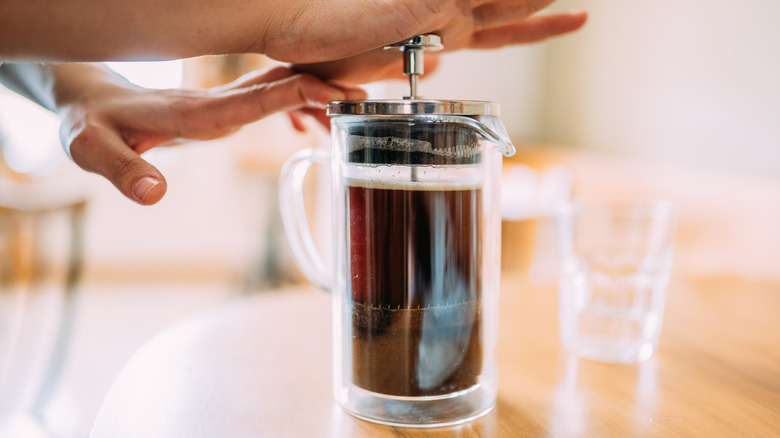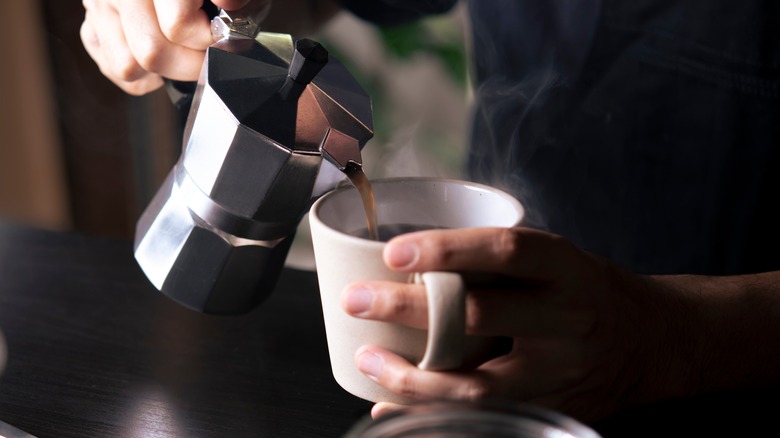The Absolute Best Water Temperature For Brewing Coffee
One of the easiest aspects of coffee to imagine is how its temperature mingles with its flavor. When one thinks of a hot cup of coffee on a rainy morning or the chill of iced coffee during a summer afternoon, the temperature is a key part of the experience. This is for scientific reasons as well as aesthetic ones.
Homegrounds explains the oxidation process that occurs when coffee meets air and deteriorates the flavor compounds of the coffee. The brewing of coffee is in itself an oxidation process too, as the ground coffee releases aromatics and acids into the water. This leads to the coffee reaching room temperature and developing a stale taste.
Little Coffee Place recommends a range of drinking temperatures for your coffee from 120 degrees Fahrenheit to 155 degrees Fahrenheit. This range actually encompasses two levels of coffee enjoyment. Until around 140 degrees, you don't quite get the heat of the coffee, but you do enjoy the flavor of it. After that, the heat becomes more pronounced until you leave the range and it simply becomes too scorching.
The right temperatures for brewing the right coffee
The range offered by Little Coffee Place is for drinking hot coffee, not brewing it. To brew hot coffee, you need a higher temperature. The National Coffee Association of the United States of America says the water used to brew coffee should be boiled to 195 to 205 degrees Fahrenheit. Colder water would fail to properly extract the aromatics and oils while hotter coffee will reduce the quality of the extraction. In practice, this means boiling water. However, once the water has boiled, you should let it rest for a minute before pouring it over your coffee. That way it will drop to the ideal temperature.
Cold brews are a different beast, of course. Drip Beans says you can either let the coffee brew at room temperature or in the refrigerator. The same science does apply even at a lower temperature coffee. If you use the refrigerator, it will have a weaker flavor. Or, as MasterClass puts it, the coffee will be less acidic, which lends it better to mixing with milk. Secondly, it lacks the aroma of hot coffee because it did not have the heat to extract it. Still, during August's muggy days, it might hit home.

